This article was co-authored by Robert Dhir, MD and by wikiHow staff writer, Eric McClure. Dr. Robert Dhir is a board certified Urologist, Urological Surgeon, and the Founder of HTX Urology in Houston, Texas. With over 10 years of experience, Dr. Dhir’s expertise includes minimally-invasive treatments for enlarged prostate (UroLift), kidney stone disease, surgical management of urological cancers, and men’s health (erectile dysfunction, low testosterone, and infertility). His practice has been named a Center of Excellence for the UroLift procedure, and is a pioneer in non-surgical procedures for ED using his patented Wave Therapy. He earned his undergraduate and medical degrees from Georgetown University and was awarded honors in pre-medical studies, urology, orthopedics, and ophthalmology. Dr. Dhir served as chief resident during his urological surgical residency at University of Texas at Houston / MD Anderson Cancer Center in addition to completing his internship in general surgery. Dr. Dhir was voted Top Doctor in Urology for 2018 to 2019, one of the top three Best Rated Urologists in 2019 & 2020 for Houston Texas, and Texas Monthly has named him to the 2019 & 2020 Texas Super Doctors Rising Stars list.
There are 16 references cited in this article, which can be found at the bottom of the page.
This article has been viewed 176,488 times.
Being unable to fully empty your bladder can be frustrating and uncomfortable. While you should definitely see your doctor if this symptom is new, rest assured that the cause is likely mundane and there are plenty of ways to minimize your bladder’s impact on your daily life while you and your doctor investigate. If you want to learn how to improve your urine flow, keep your bladder healthy, and soothe your symptoms while you get better, you’re in the right place. Read on to learn more.
Things You Should Know
- Urinate twice every time you go to fully empty your bladder and do Kegel exercises to strengthen your bladder muscles.
- Go to the bathroom whenever you feel the urge to go, don’t push or strain, and stay hydrated to keep your bladder healthy.
- See a doctor if you haven’t already. A reduction in urine flow may be a symptom of an underlying condition.
- The most common cause of a weak urine flow in men is BPH (benign prostatic hyperplasia), which is an inflamed prostate.
Steps
Expert Q&A
Did you know you can get premium answers for this article?
Unlock premium answers by supporting wikiHow
-
QuestionWhat is the cause of slow urine flow?
 Robert Dhir, MDDr. Robert Dhir is a board certified Urologist, Urological Surgeon, and the Founder of HTX Urology in Houston, Texas. With over 10 years of experience, Dr. Dhir’s expertise includes minimally-invasive treatments for enlarged prostate (UroLift), kidney stone disease, surgical management of urological cancers, and men’s health (erectile dysfunction, low testosterone, and infertility). His practice has been named a Center of Excellence for the UroLift procedure, and is a pioneer in non-surgical procedures for ED using his patented Wave Therapy. He earned his undergraduate and medical degrees from Georgetown University and was awarded honors in pre-medical studies, urology, orthopedics, and ophthalmology. Dr. Dhir served as chief resident during his urological surgical residency at University of Texas at Houston / MD Anderson Cancer Center in addition to completing his internship in general surgery. Dr. Dhir was voted Top Doctor in Urology for 2018 to 2019, one of the top three Best Rated Urologists in 2019 & 2020 for Houston Texas, and Texas Monthly has named him to the 2019 & 2020 Texas Super Doctors Rising Stars list.
Robert Dhir, MDDr. Robert Dhir is a board certified Urologist, Urological Surgeon, and the Founder of HTX Urology in Houston, Texas. With over 10 years of experience, Dr. Dhir’s expertise includes minimally-invasive treatments for enlarged prostate (UroLift), kidney stone disease, surgical management of urological cancers, and men’s health (erectile dysfunction, low testosterone, and infertility). His practice has been named a Center of Excellence for the UroLift procedure, and is a pioneer in non-surgical procedures for ED using his patented Wave Therapy. He earned his undergraduate and medical degrees from Georgetown University and was awarded honors in pre-medical studies, urology, orthopedics, and ophthalmology. Dr. Dhir served as chief resident during his urological surgical residency at University of Texas at Houston / MD Anderson Cancer Center in addition to completing his internship in general surgery. Dr. Dhir was voted Top Doctor in Urology for 2018 to 2019, one of the top three Best Rated Urologists in 2019 & 2020 for Houston Texas, and Texas Monthly has named him to the 2019 & 2020 Texas Super Doctors Rising Stars list.
Board Certified Urologist & Urological Surgeon
Warnings
- Valsalva voiding, where you flex your muscles and apply pressure to your bladder to increase urine flow, will actually increase the risk of urinary incontinence or retention.[17]⧼thumbs_response⧽
References
- ↑ https://myhealth.alberta.ca/Health/Pages/conditions.aspx?hwid=hw55013
- ↑ Robert Dhir, MD. Board Certified Urologist & Urological Surgeon. Expert Interview. 12 October 2020.
- ↑ https://www.nhs.uk/conditions/prostate-problems/
- ↑ https://www.reuters.com/article/us-enlarged-prostate-cold-medicines/men-with-prostate-trouble-should-avoid-some-cold-medicines-idUSKBN0LD2EK20150209
- ↑ https://www.nih.gov/news-events/nih-research-matters/how-your-body-senses-urge-urinate
- ↑ https://pubmed.ncbi.nlm.nih.gov/28479236/
- ↑ https://www.nia.nih.gov/health/15-tips-keep-your-bladder-healthy
- ↑ https://www.urologyhealth.org/healthy-living/care-blog/10-foods-your-bladder-will-fall-in-love-with
- ↑ https://medlineplus.gov/ency/article/003143.htm
- ↑ Robert Dhir, MD. Board Certified Urologist & Urological Surgeon. Expert Interview. 12 October 2020.
- ↑ https://msktc.org/sci/factsheets/bladderhealth
- ↑ https://my.clevelandclinic.org/health/diagnostics/22764-prostate-exam
- ↑ https://www.mayoclinic.org/diseases-conditions/high-blood-pressure/in-depth/alpha-blockers/art-20044214
- ↑ https://www.uptodate.com/contents/benign-prostatic-hyperplasia-bph-beyond-the-basics
- ↑ https://my.clevelandclinic.org/health/diseases/15133-neurogenic-bladder
- ↑ https://www.health.harvard.edu/mens-health/try-these-techniques-to-relieve-common-urinary-symptoms-without-medication
- ↑ https://www.ics.org/Abstracts/Publish/47/000779.pdf
About This Article
Before you increase your urine flow, talk to your doctor to find out if anything's causing the issue. For example, if you have an enlarged prostate, your doctor may prescribe an alpha-blocker to alleviate your symptoms. Alternatively, if you have a weak bladder, your doctor might recommend medication or exercises to strengthen your flow. Once you've been diagnosed, you can increase your urine flow at home by adjusting your bathroom habits and doing exercises to strengthen your bladder muscles. Make sure to drink plenty of water throughout the day to avoid dehydration, which will also decrease your urine flow. When you go to the bathroom, relax the best you can and take some deep breaths, since trying to rush things on the toilet may make it harder to go. To strengthen your bladder muscles, try doing some kegels. Squeeze the muscles that you would use to stop your flow while urinating. Hold it for 5 seconds, then relax. Repeat this several times in a row. You can do this exercise anywhere throughout the day to gradually strengthen your pelvic floor. To learn how to take supplements to increase your urine flow, read more from our Medical co-author!
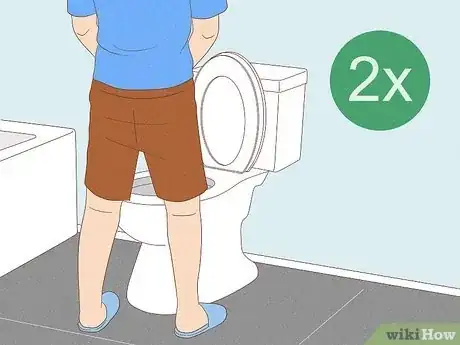
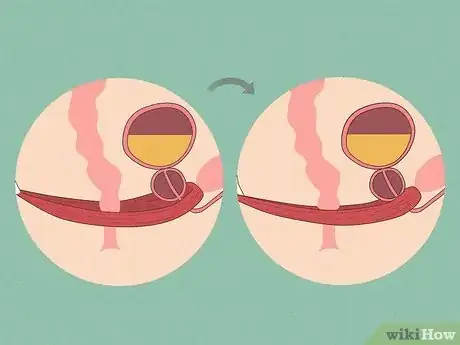

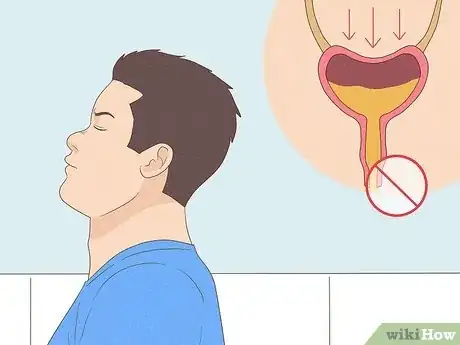
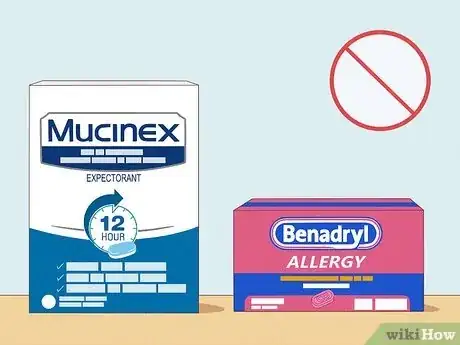
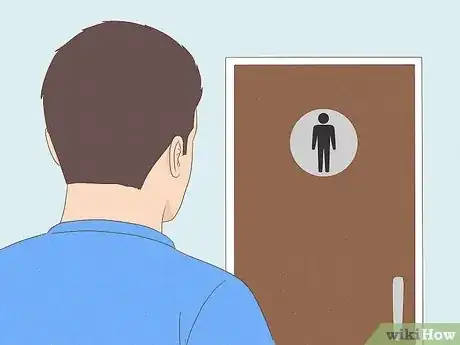
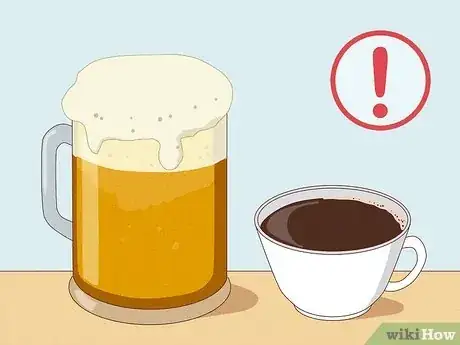
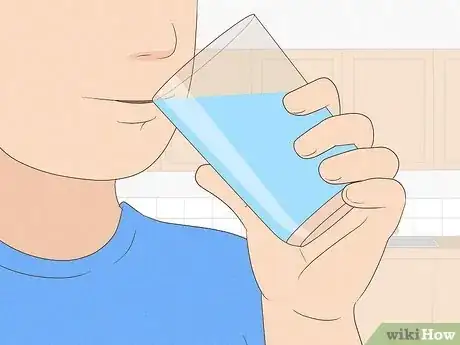

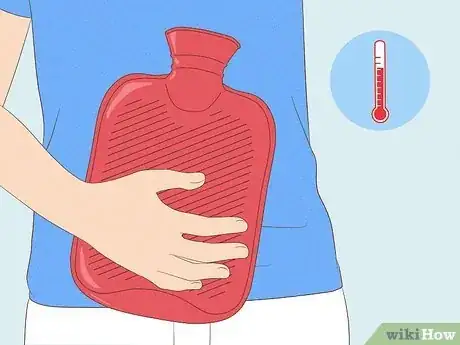
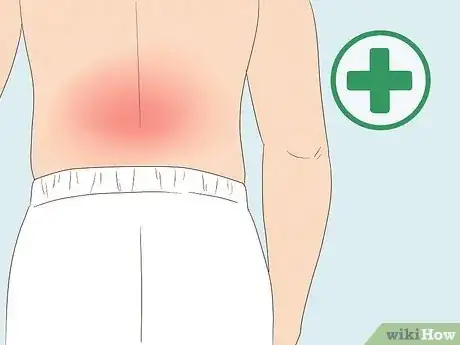
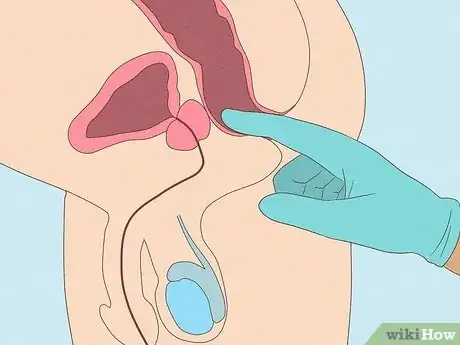
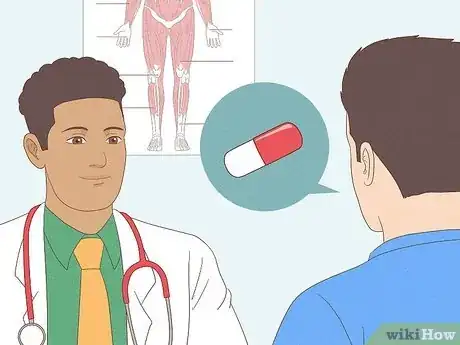
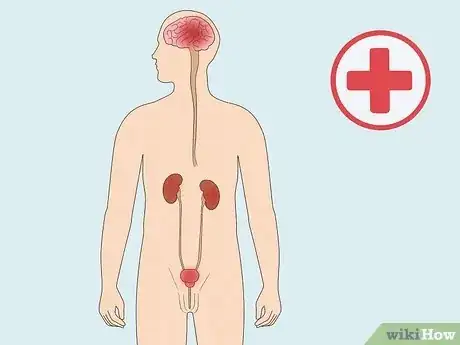
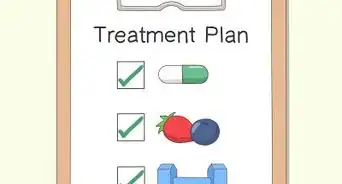

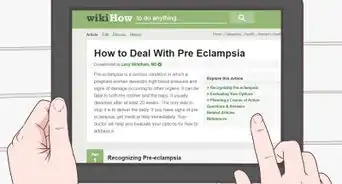


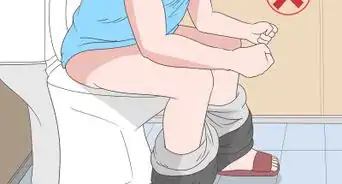
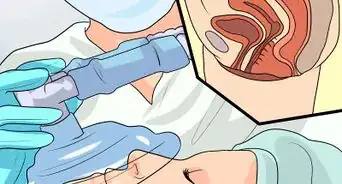


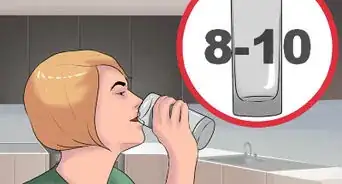

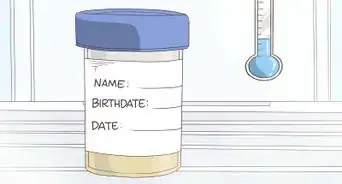

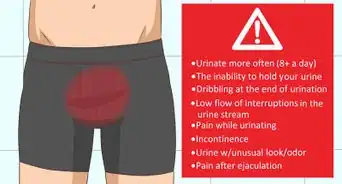






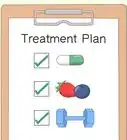
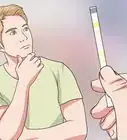
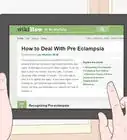




































Medical Disclaimer
The content of this article is not intended to be a substitute for professional medical advice, examination, diagnosis, or treatment. You should always contact your doctor or other qualified healthcare professional before starting, changing, or stopping any kind of health treatment.
Read More...